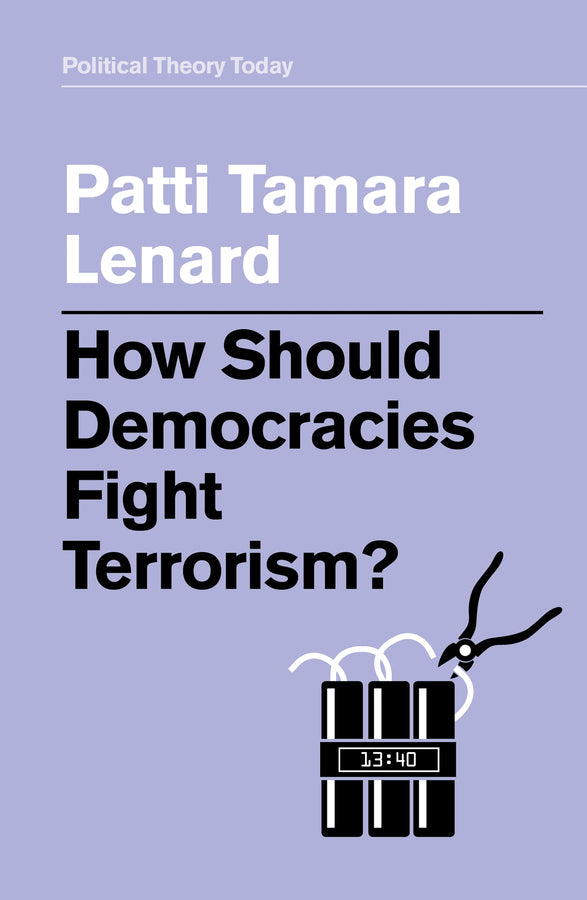Description
Explore the complex interplay of democracy and counter-terrorism in 'How Should Democracies Fight Terrorism?'. This insightful book by Patti Tamara Lenard delves into the imperative question of how nations can defend against horrific acts of terrorism while upholding core democratic values such as liberty, equality, and trust. With recent tragic events, including the Christchurch mosque shootings and the Pittsburgh synagogue attack, the need for an informed approach to counter-terrorism has never been more pressing. The book critically analyzes overreaching security measures that could undermine democratic principles and presents ethical counter-terrorism strategies that foster community trust rather than fear. Through 140 pages of thought-provoking discourse, readers will gain a comprehensive understanding of effective ways to combat terrorism without compromising the democratic ethos. Lenard's work is a must-read for students, scholars, and policymakers intersecting with public affairs, security studies, and the ethics of governance in modern democracies. This brand new edition is published by John Wiley & Sons in 2020 and carries the ISBN 9781509540761. With free shipping available, your order will arrive in up to 6 weeks. Note: Once your order is placed, it cannot be cancelled.
Note: Shipping for this item is free. Please allow up to 6 weeks for delivery. Once your order is placed, it cannot be cancelled.
Condition: BRAND NEW
ISBN: 9781509540761
Year: 2020
Publisher: John Wiley & Sons (UK)
Pages: 140
Description:
In the wake of major terrorist attacks, calls for ever more draconian policies to prevent further outrages are common. Such responses raise the pressing question: is it possible to effectively fight terrorism while respecting democratic values of equality and trust?  Examining recent examples of terrorist atrocities “ from the murder of Muslims in New Zealand and Jews in Pittsburgh to the Charlie Hebdo attacks “ Patti Tamara Lenard considers how democracies should tackle terrorism within the constraints imposed by democratic principles. For many, the tension between liberty and security necessarily means that the only way to protect security is to sacrifice liberty”but Lenard rejects this claim, and instead argues that security™s goal should be to keep all citizens equally secure in the face of terrorist threats. Critiquing existing policies, from exile to racial profiling, she outlines what ethical counter-terrorism policies should look like, arguing for strategies that respect equality and thereby maintain trust among diverse communities in democratic states.  This erudite guide to how states might ethically fight terrorism will be essential reading for any student or scholar of public affairs, security, counter-terrorism, and democratic governance.
Note: Shipping for this item is free. Please allow up to 6 weeks for delivery. Once your order is placed, it cannot be cancelled.
Condition: BRAND NEW
ISBN: 9781509540761
Year: 2020
Publisher: John Wiley & Sons (UK)
Pages: 140
Description:
In the wake of major terrorist attacks, calls for ever more draconian policies to prevent further outrages are common. Such responses raise the pressing question: is it possible to effectively fight terrorism while respecting democratic values of equality and trust?  Examining recent examples of terrorist atrocities “ from the murder of Muslims in New Zealand and Jews in Pittsburgh to the Charlie Hebdo attacks “ Patti Tamara Lenard considers how democracies should tackle terrorism within the constraints imposed by democratic principles. For many, the tension between liberty and security necessarily means that the only way to protect security is to sacrifice liberty”but Lenard rejects this claim, and instead argues that security™s goal should be to keep all citizens equally secure in the face of terrorist threats. Critiquing existing policies, from exile to racial profiling, she outlines what ethical counter-terrorism policies should look like, arguing for strategies that respect equality and thereby maintain trust among diverse communities in democratic states.  This erudite guide to how states might ethically fight terrorism will be essential reading for any student or scholar of public affairs, security, counter-terrorism, and democratic governance.

